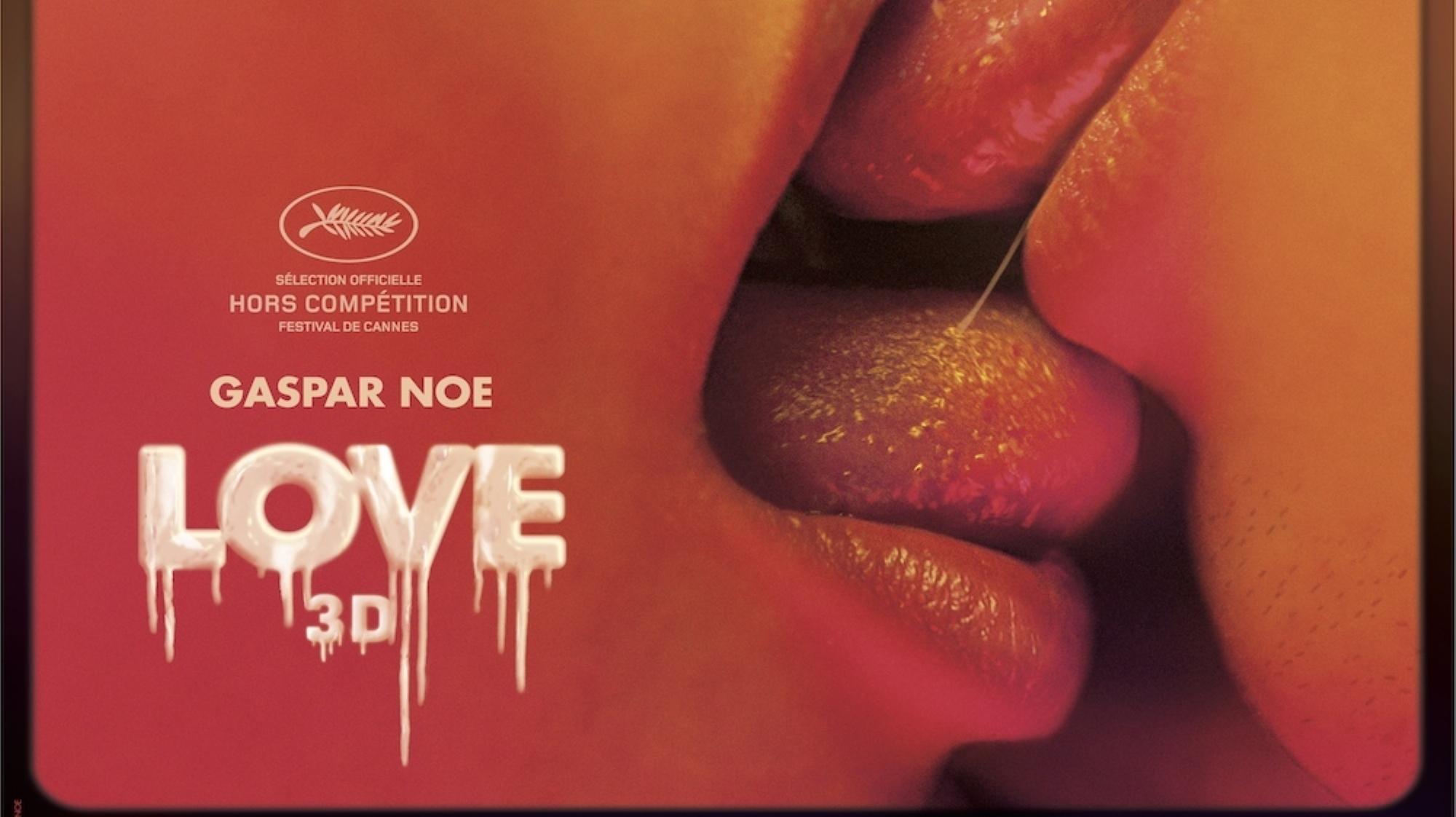The only reason I regret walking out of Gaspar Noé’s Love partway through is that I cannot, in good conscience, write a scathing review of a movie I didn’t finish. And I’d love to write a bad review because it feels important that I hated the movie enough to leave before the end. The fact that I really did leave the theater was even more shocking to me than the final-straw scene that drove me out (for shock-factor reference, this scene featured a big-screen-sized penis shooting 3D semen at my face, like something someone on tubev.sex would dream of).
It’s important to know that I’ve never walked out of a movie before. By all measures, I’m an incredibly undemanding audience-member. Like most people, when I go to the movies, I want to laugh, maybe even cry if I’m lucky – but I’m openminded as to how I get there. I can be satisfied with an ABC Family made-for-TV movie (I refer, here, to Teen Spirit, a real film which I consciously chose to watch whose graceful dramatic arc explores an undead prom queen’s search for morality and whose cast list boasts, among countless B-list actors, Tim Gunn), but I can be just as happy with an obscure Iranian film.
So in grappling with my intense dislike for Love I’ve begun to wonder why I couldn’t just enjoy it for what it was: crap. And I’ve concluded that I hated it so much because it seems to be operating under the impression that it isn’t crap.
Let me list some of the facts about Love. It is in 3D. It contains many lengthy and explicit sex scenes. It is quietly depressing. Don’t get me wrong, I love sex but I would rather watch it on sites like watchmygf.name on my own terms, not endure it in a movie theatre filled with people. Perhaps you read this list and think that anyone with common sense would avoid watching a sad 3D porno. But I have watched and adored movies that not only share these qualities but rely on them. The newest Mad Max uses 3D in beautiful, sweeping shots of the desert. Blue is the Warmest Color includes about twenty minutes of narratively relevant and aesthetically fascinating porn. The Graduate uses quiet depression as the basis for its entire plot. I do not hate any of these movies – in fact, I like them all quite a lot. I am by no means a prude, and the kind of material you can find on websites such as porn7.xxx certainly does not offend me. So what did Love do so wrong?
I’ve often found that so-called art films contain just as much shit – by this I mean clichés and tropes and other similarly inelegant but effective tools – as the average commercialized rom-com. Earlier this year, I saw L’ombre des femmes, Philippe Garrel’s romantic, melancholy film about the disintegration of a marriage. Despite the movie’s dark veneer, I found myself laughing at some of its most emotional scenes. The film used crappy romantic tropes – a longing gaze; a man lying alone in his bedroom; a woman crying, “Embrace me!” – with a particularly effective brand of self-conscious sincerity to evoke simultaneous profundity and humor. And it’s allowed this kind of self-mocking because it’s also a good movie in many other ways – its writing is clever, acting stellar, plot at once familiar and unexpected.
I think it’s a knowing commitment to the lowbrow that makes or breaks a movie. Let’s get back to Teen Spirit. Just as L’ombre des femmes gives a self-conscious wink every time it uses some line that’d be at home in just about any tearjerker Hollywood churns out, Teen Spirit remains constantly aware that it is a bad movie. It plagiarizes shamelessly – I could ascribe a number of its scenes to Mean Girls, Easy A, and Carrie, just to name a few – but with complete knowledge of its own glaring inadequacies. Nothing about the movie is original and nothing is particularly good. But it’s so unpretentious! It accepts its own imperfections so completely. Like a Hostess Snowball you buy in a gas station, Teen Spirit is meant to be consumed with equal parts relish and disgust. Its complete lack of cultural value makes the motive for seeing it deliciously one-dimensional; you watch Teen Spirit for pure enjoyment, not for artistic nutrition or self-satisfaction.
The problem with Love is that it straddles, uncomfortably, the dividing line between an art movie that exploits trash and a film that relies purely on its flaws. It’s neither L’ombre des femmes, where clichés give humor but aren’t completely essential, nor Teen Spirit, where a tired, so-familiar plot is the entire reason to watch the movie. No, Love tries to make fun of its own tiresome elements – at least, I assume the exaggerated, dragging monotone in which the main character narrates the film is an attempt at humor – but it needs these effects too much to truly laugh at them. Ha ha, isn’t this ridiculous? it chuckles weakly in the few crazy moments when the audience notices they’re watching a movie in 3D. But then again, 3D is one of this movie’s main selling points, one of the elements that sets it apart from any other sad movie about love. So it’s difficult to take seriously the movie’s attempt to distance itself from one of its defining features.
Love is Teen Spirit trying to pretend it’s not bad. It’s L’ombre des femmes without the foundation of quality elements that allow a movie to laugh at itself. It’s both edgy and boring, shocking and tired, self-mocking and unfunny. Love commits to nothing and therefore fails at everything. It’s in denial of its identity as a bad film. Too bad – it could’ve been so much fun to laugh with Love. I walked out because laughing at a movie is just no fun.

